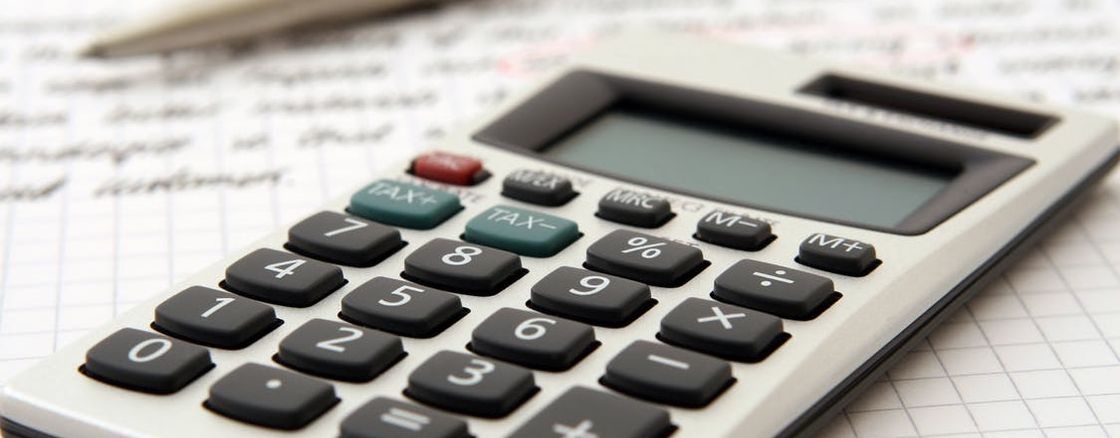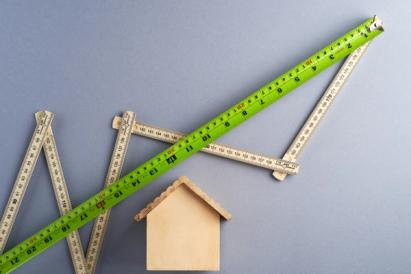How Does a Mortgage Calculator Work?
Written by:
Andrew Tavin
Andrew Tavin
Personal Finance Writer
Andrew Tavin a contributing writer for Own Up.
See full bio
Fact Checked by:
Dan Silva
Dan is the Vice President of Marketplace Lending at Own Up. Throughout his career, he has held executive leadership positions in the mortgage and banking industry.
See full bio

A mortgage, regardless of the loan type, is a long-term commitment. It isn't enough to determine if you can afford a mortgage down payment right now. You want to be confident that you can make your monthly payments for the entire loan term – meaning, the entire life of the loan.
That's where a mortgage calculator can be a very helpful tool. It's a loan calculator you can use to discover how different factors will impact your mortgage interest rates and monthly payments.
To properly use a mortgage payment calculator, you'll need to understand its different parts and the information you need to use it, including the home purchase price, home loan amount, home loan term, down payment, interest rate, and more.
Mortgage Calculator Components
Instead of trying to understand the formula behind mortgage calculations, you can easily calculate your mortgage payment using a calculator like the Own Up Rate Range Finder.
When using a mortgage calculator, you'll be presented with multiple inputs based on your potential mortgage terms. Let's look at each of those parts so you'll be ready to evaluate your loan options.
Home Loan Term
The home loan term is the period of time it will take to pay off your mortgage balance. There are a wide range of available mortgage options that impact a loan term, but many first-time home buyers will be choosing between a 15-year mortgage and a 30-year loan.
A 15-year loan will typically result in higher monthly payments than a loan with a longer loan term, such as a 30-year loan. This is because a longer loan term will accumulate more interest during the longer payback window.
Be aware that many calculators may only have fixed-rate loan options, meaning the initial interest rates will stay consistent throughout the entire loan term and you should know the exact number of payments it will take to pay off the loan. The rate for an adjustable-rate mortgage, on the other hand, will increase or fluctuate after a certain number of years.
You may need to speak with a mortgage consultant about your specific situation if you're considering an adjustable-rate mortgage loan instead of a fixed-rate mortgage.
Purchase Price and Loan Amount
The purchase price is the amount you agree to pay for the home. This can differ from the loan amount, depending on how much of a down payment you make. For example, if the home purchase price is $400,000, and you decide to put forth a 20% down payment, your loan amount will be $320,000.
Be sure to note if the calculator is asking you to input a purchase price or a loan amount when you enter the information.
You can research housing markets to determine the average home price for the property ZIP code you're considering. This, along with your own savings and budget, can give you a starting point for the sort of purchase price to enter into the calculator.
Down Payment
A down payment is the amount of money a buyer puts forward in cash toward the entire purchase price of the home. It helps to show the seller and the lender that you are serious about the purchase but also fiscally responsible.
More importantly, your down payment amount will have a direct impact on your loan amount, your monthly mortgage payment, and the amount you pay in interest over the total life of the loan. A larger down payment will result in a lower loan balance, total monthly payment, monthly interest payment, and total interest payment. A smaller down payment will result in a higher loan balance, total monthly payment, monthly interest payment, and total interest payment.
In other words, the larger your down payment, the more money you will save over time. A mortgage affordability calculator can help you see how your down payment amount will impact your monthly and long-term costs.
Credit Score and/or Debt to Income Ratio
There are many factors a mortgage lender will consider when determining what type of mortgage a borrower qualifies for, including bank statements and employment status. Your credit score and debt-to-income ratio are two more of those factors, and some mortgage calculators will allow you to input them.
Your credit score is a three-digit number based on your credit history compiled by the three major credit bureaus: Experian, TransUnion, and Equifax. Your debt-to-income ratio, meanwhile, is a comparison between your monthly debt payments and your monthly income.
What Other Inputs Do Mortgage Calculators Use?
Most bare-bones mortgage calculators will have some combination of the previously mentioned inputs, but many will also allow for more specific loan details and monthly house payment components.
For example, you may be able to factor in the cost of private mortgage insurance, or PMI. PMI is a form of insurance that certain lenders—and all Federal Housing Administration loans—may require if your down payment amount doesn’t equate to a certain percentage of the home purchase price (typically 20%).
Some other key components a mortgage calculator may include are fields for:
- Property taxes
- Homeowners association fees (also called HOA fees)
- Homeowners insurance premiums
- Closing costs
- Whether it is an original loan or refinance
How Do You Calculate Your Personal Mortgage Details?
Now that you understand the different parts of a mortgage calculator, it should be simple to input the appropriate numbers and hit a button labeled "calculate" or something similar.
The results will be your mortgage payment estimate. Most calculators will show your monthly payments as well as the total cost of the entire loan.
If you don't have a specific house in mind, you can imagine a slightly more expensive house to get a sense of the maximum loan amount you can afford. That way you'll know what your upper limits are before you begin your housing search. Playing around with the different amounts and types of loans will help you gain a better sense of how far your budget will go on a new home.
How Can You Reduce Your Monthly Mortgage Payments?
So you've tried different inputs across different mortgage calculators but you keep getting an estimate outside what you can afford. You have a few options at this point.
1. Consider a Co-signer
If you have a friend or family member with stronger finances, you'll be able to qualify for a better rate if they're willing to sign onto your mortgage. However, they'll be on the hook if you don't make your payments on time, so it's important you both understand that before the close.
2. Give Your Credit a Boost
You could also take some time to work on your personal finances before considering a mortgage, whether that means raising your credit score through responsible credit card use, paying down your debt to improve your DTI, or building your savings so you can afford a bigger down payment.
3. Research Mortgage Assistance Programs
Additionally, you can look into different mortgage options. The federal government created the FHA to guarantee more affordable loans for certain buyers. These loans come with stricter requirements but they can be a very good option, especially for first-time buyers.
4. Wait for the Right Time
Finally, there's always the possibility that it's just not the right time to buy a home. In addition to your own finances, there are many larger economic factors that can affect your ability to afford a mortgage. If current interest rates are too high, you may need to keep saving and waiting before your homeownership dreams can come true.
Get to Calculating
Whether or not you're ready to buy a home, there's no harm in messing around with a mortgage calculator. It can be useful for educational purposes and it could give you a sense of how far away you are from your goals.
The Bottom Line
Remember that, regardless of your type of loan, you'll be paying its monthly costs for many years to come. A little time fiddling with a loan calculator in the present could save you a lot of financial headaches in the future.


